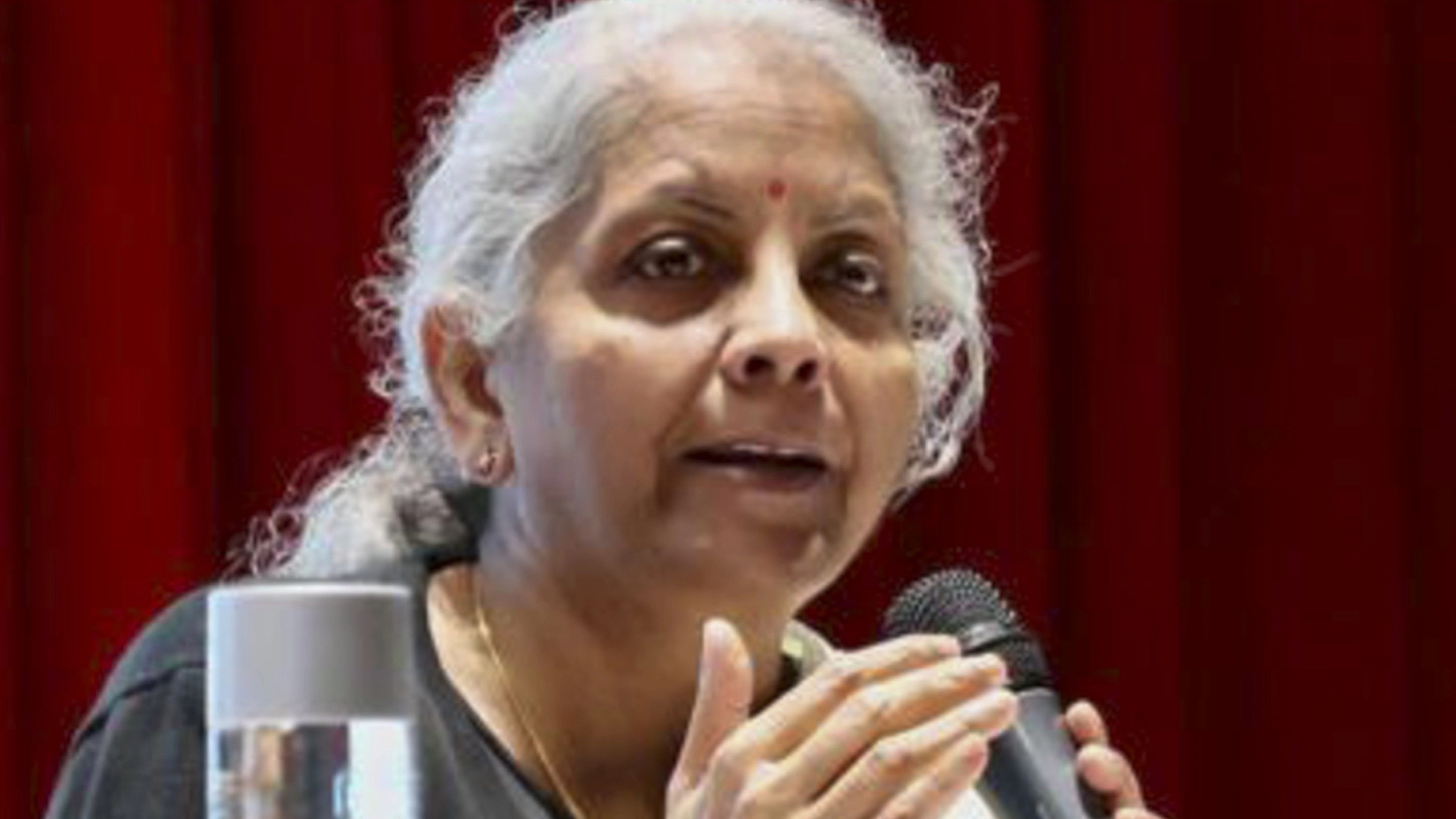
New Delhi: Days ahead of the interim budget, Finance Minister Nirmala Sitharaman on Thursday said modernising post-harvest practices to boost agriculture ecosystem, and pushing manufacturing in sunrise sectors like renewable energy, semiconductors, material sciences are among the government's top priorities.
"High priority is being given to these sectors, and (this is) not just in the budget," the Finance Minister said in an interaction with students at Delhi University’s Hindu College. She is scheduled to present an interim budget for the financial year 2024-25 on February 1.
In manufacturing, according to the finance minister, the government has identified 13 sunrise sectors that would receive high priority. These sectors include semiconductors, renewable energy, material sciences, earth sciences and space industries.
“Agriculture retains its primacy and we are looking at strengthening agriculture by modernising some of the practices, post-harvest practices, and so on,” she said.
On food security, the finance minister said India is nearly self-sufficient in most segments, except in oil seeds and pulses. “There are a lot of countries which want to have long-term understanding with India for food exports, processing of food, export of processed food, export of value added food. Immense possibilities exist in agriculture. We are investing in R&D for agriculture,” she added.
The finance minister claimed that the government is close to saturation in implementing social security schemes.
The government has been able to save Rs 2.5 lakh crore through Direct Benefit Transfer (DBT) by weeding out dummy and undesirable beneficiaries, she said.
According to the finance minister, the government has categorised India in four groups – youth, women, farmers and poor. The government’s programmes and policies revolve around the betterment of these four groups.
On the central bank digital currency, Sitharaman said the government and the Reserve Bank of India (RBI) are actively engaged to increase its usage, including for cross-border payments.
“We strongly believe it helps in cross border payments. It will bring in greater transparency and traceability,” she said.
She further added that the digital currency would help in bringing down cost for inward and outward remittances and make the process faster. “Both the regulator (RBI) and the government are working on it. We are actively engaged in it,” she said.
Citing buoyancy in major macro-economic numbers, the finance minister rejected the theory that India's ongoing recovery is 'K-shaped'.
“I will just give you a random example – India is the fastest growing (economy), every sector of India is moving fast, the stock market is doing very well, companies that are listed, whose accounts are available for public to view, are doing well, higher dividends are being given. But, in spite of that, the narrative would be 'Indian economy is not very well, it is sick, there are some sectors which are suffering, there is a K-shaped recovery'. Hang on,” she said.
"For those who say all this, I want them to stand up and say on what basis are they saying it. But they won't be available for you to answer. They throw that idea and go away," she added, without taking any names. ‘K-shaped recovery' refers to a situation where some sectors of the economy revive after a slowdown or recession while others don't.